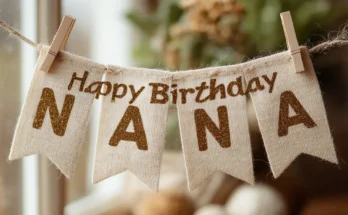Eighteen years of marriage, Jess thought she knew Ben, despite the silent distance and mounting unspoken issues. She met Ben in college; she was quiet, he was loud, but he was the first person who looked at her like she truly mattered. Now in her forties, Jess felt the difference in her body and heart, catching younger, perfect-looking women glancing at Ben—women who didn’t know the heartache required to stay. She shook off the worry, focusing on routine, folding laundry, and boiling rice. This familiar routine shattered the day the door opened. Jess was vacuuming, messy and wearing an old sweatshirt, when Ben walked in with a girl, Carly, who looked barely nineteen and clung to his arm like she belonged.
“This is Carly,” Ben stated, looking entirely unbothered. “She’s a good friend from work. She’s going through a rough patch. I told her she could stay with us a few days.” Jess stared, wanting to scream “absolutely not,” but she only managed a tight nod. She didn’t want a scene and still hoped Ben was truthful, but deep in her chest, a voice whispered: This isn’t just a few days. That night, after Carly went to bed, Jess confronted him while folding laundry. Ben nervously explained that Carly was a new intern whose mother had kicked her out, and he couldn’t leave her out there. He quickly insisted she was only staying “just the weekend.” Jess gave a tight nod, but she did not truly believe him.
The next morning, the sweet, buttery smell of pancakes woke Jess up. She padded down the hall and stopped cold at the kitchen door. Carly, wearing Jess’s apron, was expertly flipping pancakes, while Ben stood beside her, smiling, joking, and helping her stir the batter. They looked perfectly natural, like a couple on a cooking show. When they noticed Jess, they cheerfully wished her “Good morning!” Jess forced a tight smile, her mouth too dry to reply. Ben handed Carly a plate with gentle care, his hand grazing her shoulder—a tenderness he never showed Jess, who noted he was always “too tired” to help her with breakfast. Jess remained silent, her stomach twisting with jealousy and pain.
That night, needing silence away from the suffocating presence of Carly and the feeling of betrayal, Jess went to the store. She walked the aisles without really seeing them; she was only hiding. When she returned, the house was deadly quiet. Setting the bags down, Jess heard a soft, broken sound—crying. She followed it to the dimly lit bathroom, finding Carly hunched on the tub edge, shaking, hands covering her face. When Jess asked what was wrong, Carly looked up, her eyes red, and whispered, “I can’t say.” When Jess pressed her, Carly’s voice cracked: “He told me not to.” Jess’s heart slammed; she knew then this was a significant secret, not just a temporary rough patch.
Jess waited for Ben at the kitchen table, the room painted in shadows by the stove light. Ben froze when he saw her face. Jess cut off his inevitable excuse, demanding the truth instantly. “No more stories. No more nice answers. Either you tell me everything… or I pack my bag and walk out. Tonight. And you’ll never see me again.” Ben stared, searching for the forgiving version of his wife, which was gone. Trembling, he pulled out a chair and finally confessed, “I was going to tell you. I just didn’t know how.” Jess waited, silent, before Ben finally admitted the truth, confirming her deepest fear: “Carly’s not a co-worker. She’s not my friend. She’s my daughter.”
Ben explained that before meeting Jess, he’d had a brief relationship, resulting in a baby. He panicked and told the mother he was “too young,” believing that part of his life was buried until Carly, having been kicked out by her mother, found him. He looked up, saying he hadn’t told Jess because he “didn’t want to lose you.” Jess felt hollow, stood, and walked past him upstairs to Carly’s room. She found Carly staring at the ceiling, eyes red and puffy from silent crying. Sitting down, Jess stated, “I know everything now.” Carly apologized, whispering she didn’t mean to come between them. Jess took her cold hand and firmly replied, “You didn’t. You’re not the problem. You’re his daughter. That means… you’re part of this family now.” Carly, who had never had a real family, leaned into Jess’s embrace. “You do now,” Jess whispered. “You’re home.”


